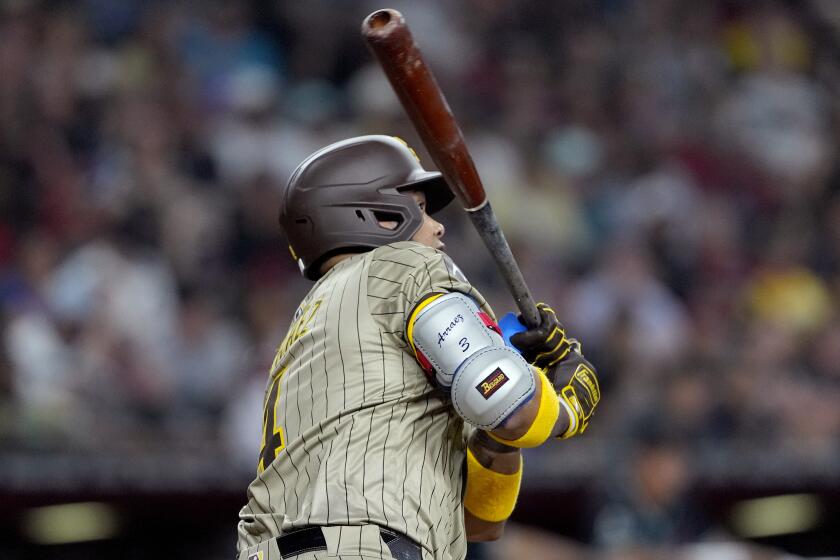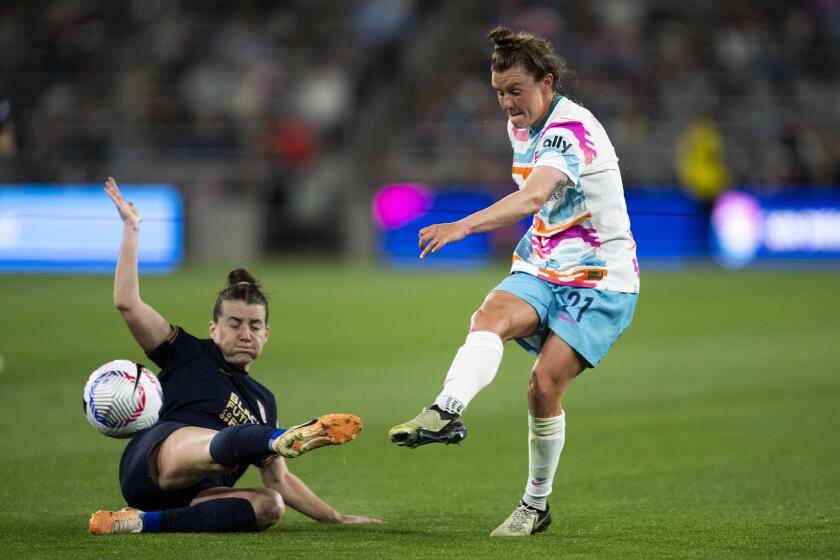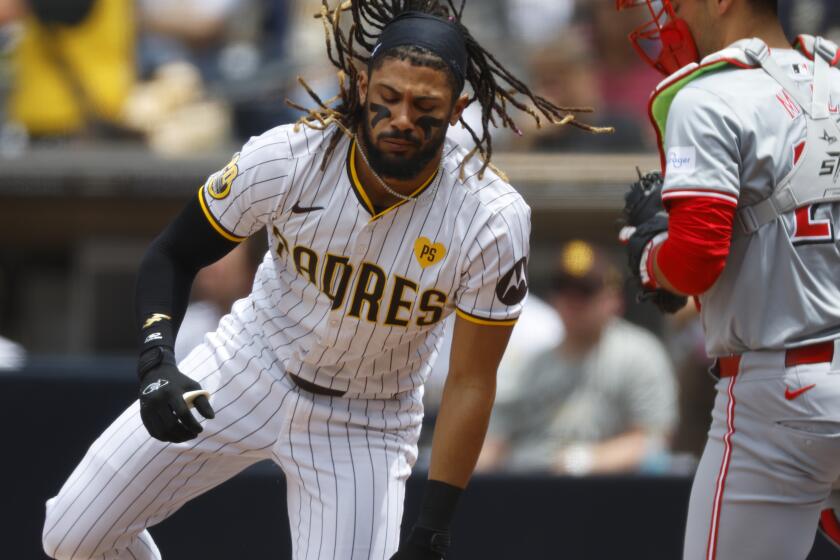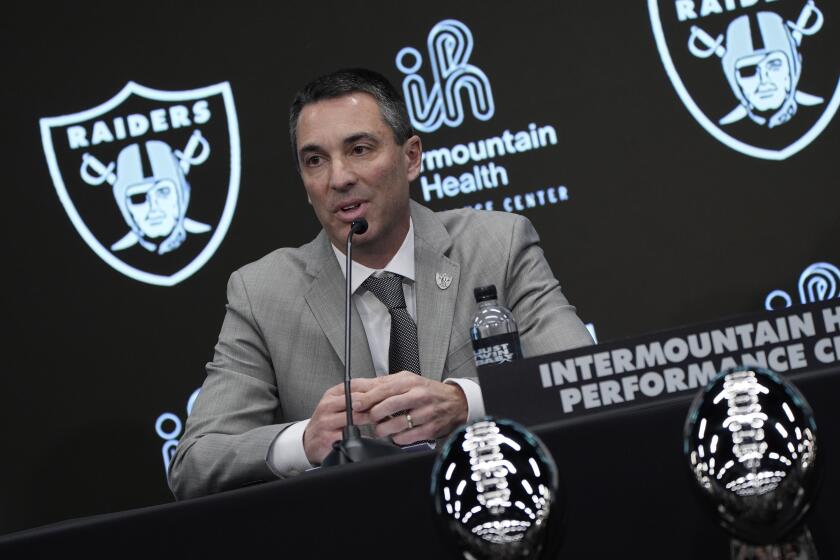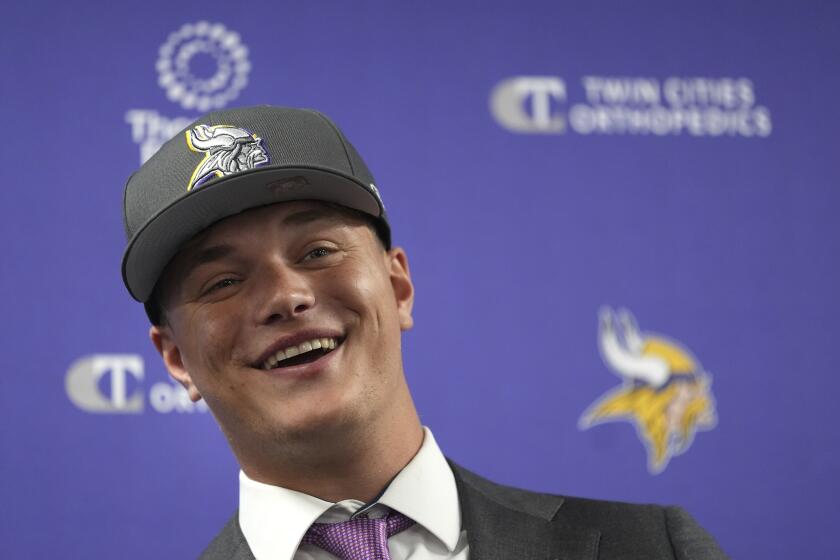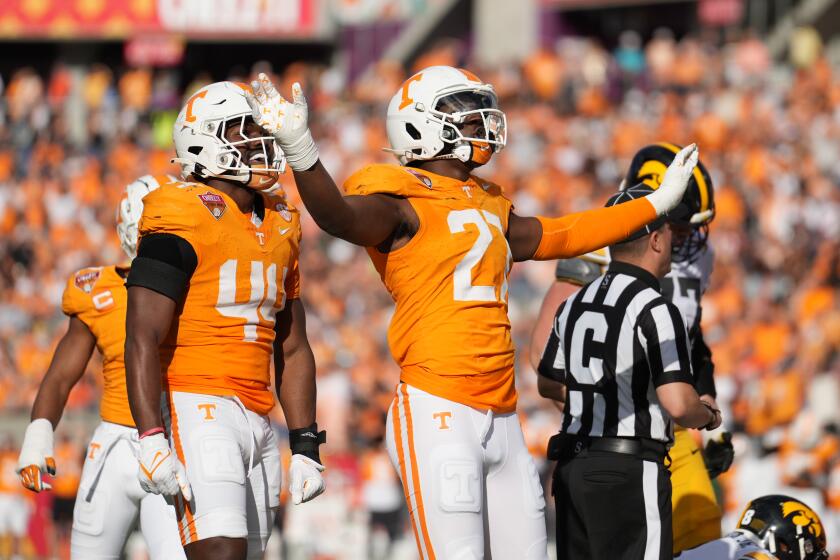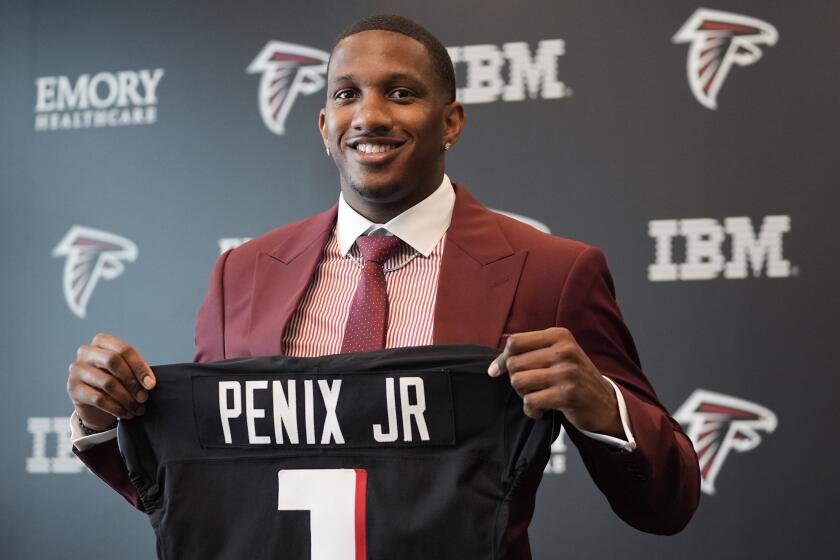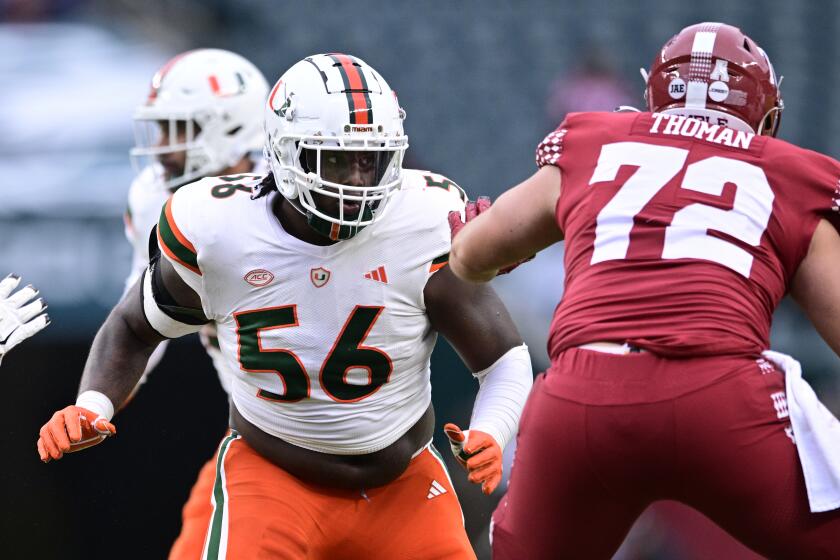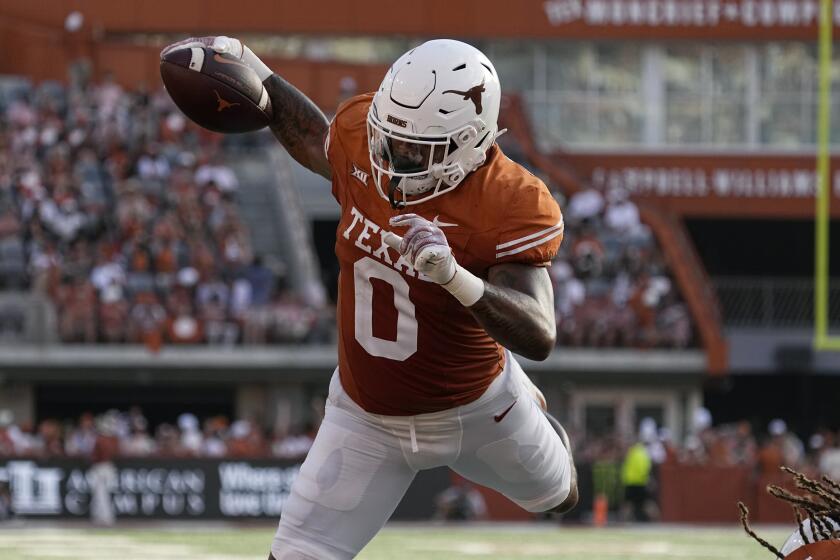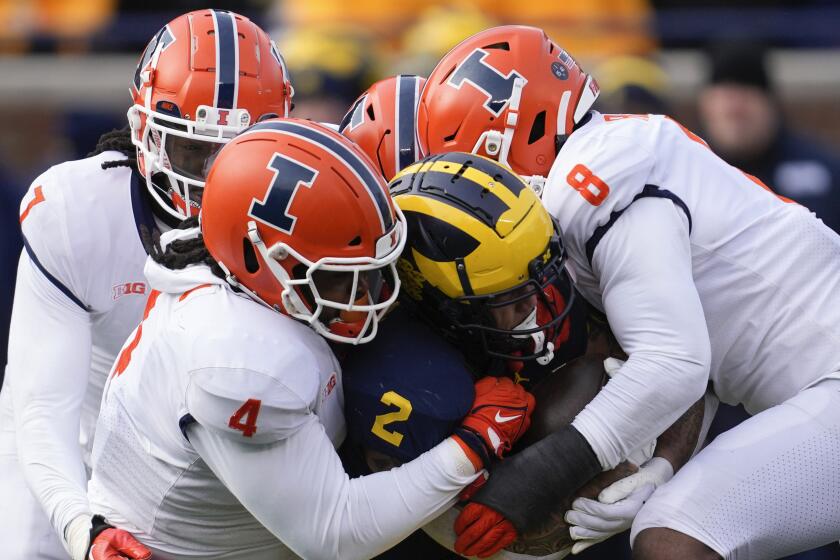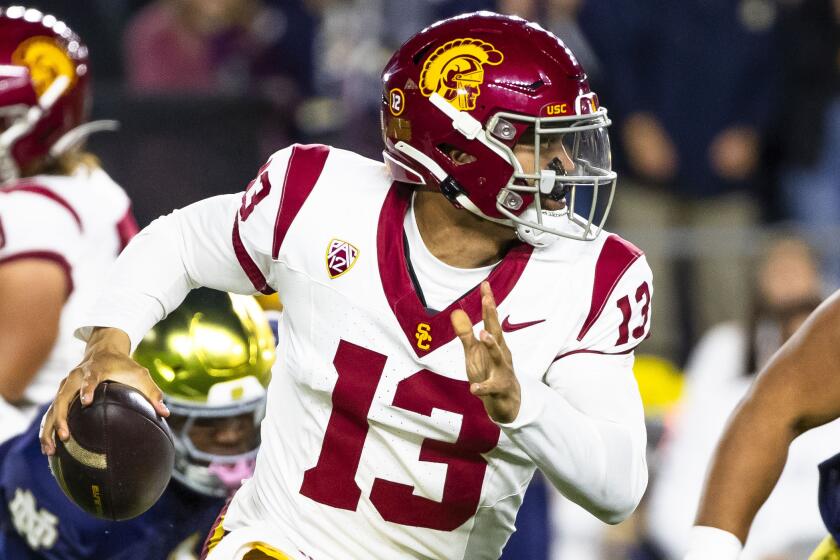Tom Krasovic: Broncos’ disastrous trade for Russell Wilson will hinder them for years
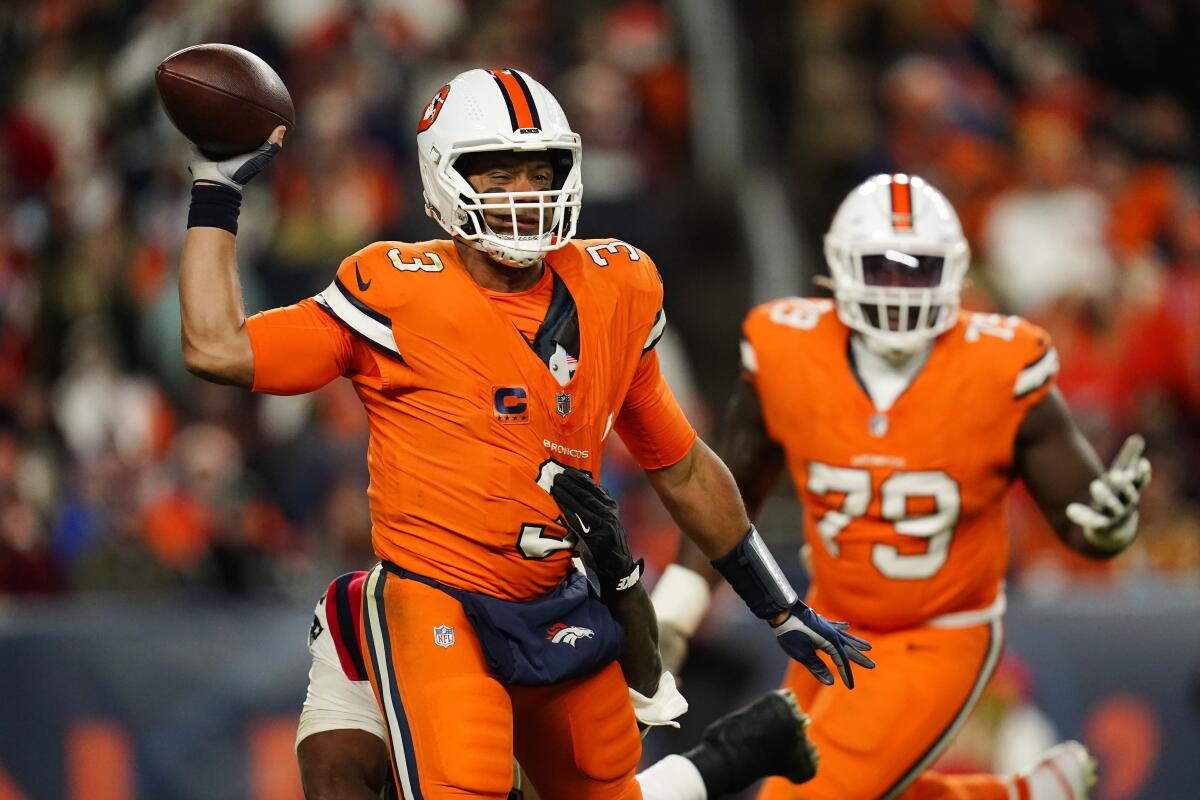
NFL teams greatly outnumber the supply of franchise quarterbacks. The Broncos found out how desperation at the sport’s most important spot can boomerang in a big way.
Four decades after the Denver Broncos pulled off one of the great NFL trades to land John Elway — with an assist from San Diego Chargers owner Eugene Klein — they acknowledged one of the league’s worst trades this week by informing Russell Wilson, 35, they’ll release him soon.
Four things stand out from the Wilson trade, which sent four premium draft picks and three players to the Seattle Seahawks two years ago this month.
One: desperation can make fools of NFL football executives.
The Broncos were desperate to solve their recurring QB issues. A front office headed by Elway hadn’t found a build-around successor to Peyton Manning in the seven-plus years since his retirement.
Seahawks GM John Schneider exploited Denver’s hunger, brokering a lopsided deal with George Paton, a longtime Minnesota Vikings scout new to the GM job.
Two: buyer beware, especially when a key trait recedes.
Wilson had aged well in some respects. He maintained good arm strength into his 30s. He made deft touch throws on the move, a skill that meshed with Broncos receiver Courtland Sutton. He retained craftiness that set up successful checkdown passes.
But, deep into his Seahawks tenure, he’d begun to lose some of his mobility. Though his quickness and agility weren’t his only above-average traits in his peak years, they were foundational to his playmaking on a pair of Super Bowl teams.
Wilson’s decline in foot speed crowded his office. It chipped at the 5-foot-10 1/2 QB’s passing and rushing options. Effecting a vicious cycle, it led to more hits and sacks.
In the red zone, his increased limitations stood out.
Three: the Shamrock Chargers should light candles in gratitude to the football gods.
Largely through astounding good luck at QB, the Chargers have lived outside the QB-hungry conditions that spur desperate trades and free-agent signings. The Wilson trade is one of several recent examples. In the same month that Denver mortgaged huge chunks of its future on Wilson, the desperate Browns made an even bigger bet on Deshaun Watson.
Unless Watson regain his playmaking form that inspired the trade, the Browns-Texans deal may prove more lopsided than the Wilson trade.
Four: Jim Harbaugh succeeded spectacularly, where Sean Payton missed out.
A year ago, Payton expressed interest in becoming the Chargers’ head coach. He would’ve inherited a franchise QB in Justin Herbert.
How talented is Herbert? Drew Brees, with whom Payton won a Super Bowl, termed him “great” in three areas: physical tools, leadership and intangibles.
When Chargers executive John Spanos and others chose to retain Brandon Staley, Payton took the Broncos’ job while knowing he’d inherit Wilson.
Wilson improved in his one season under Payton. But the offense was still below average.
Harbaugh, given the chance to replace Staley, took the Chargers’ job last month despite Michigan offering him a new contract.
No dummy, Jim.
Herbert needs to evolve in some areas but gives Harbaugh a chance to reach his second Super Bowl.
Such are the respective QB situations that Harbaugh starts this season near the red zone, while Payton stands backed up against his own end zone.
Beyond the obvious truth of the Broncos needing a dramatic success to find a QB as capable as Herbert, 25, the financials loom large.
Consider that Wilson’s contract — heavier than a cargo plane that transports space shuttles — will impede Denver’s attempts to build up a bad roster for two more years.
In both years, the Broncos’ financial obligations to Wilson will chew up far more of their salary cap than Herbert’s contract will consume of the Chargers’ cap. Wilson’s cap hits of $35 million and $50 million can’t be offet by Wilson’s next contract. They rank eighth and fourth of all QB cap charges currently on the books for ’24 and ‘25, per OverTheCap.com.
The Chargers are so lucky at the NFL’s most important position that the lone time their franchise QB became unavailable to start a game in the past 21-plus years, it proved a gift. Minus Herbert late last season, a last-place Chargers team lost its final four games. The reward appears golden: a No. 5 pick in a 2024 draft that draftniks rate as top-heavy.
Four-plus decades ago, things were a lot different.
The Broncos capitalized on the Chargers passing on a chance to trade for Elway as he entered the NFL, enabling them to obtain the future Hall of Famer from the Colts.
At the time, Klein — who was in a contract dispute with star quarterback Dan Fouts — offered the No. 20 and 22 picks from the 1983 draft, the club’s first pick in 1984 and quarterback Ed Luther for the rights to Elway, per ESPN’s “30 for 30” documentary in 2013. Colts GM Ernie Accorsi also wanted the Chargers’ No. 5 pick because he wanted to draft Dan Marino, his second choice at quarterback behind Elway.
Klein wouldn’t budge. The Chargers instead used the No. 5 pick to acquire linebacker Billy Ray Smith of Arkansas.
The Wilson trade may not be as bad for the Broncos as the Elway trade was good for them. But as Harbaugh and Herbert team up, it may be awhile before the Broncos are relevant again in the annual Super Bowl race.
Sign up for U-T Sports daily newsletter
The latest Padres, Chargers and Aztecs headlines along with the other top San Diego sports stories every morning.
You may occasionally receive promotional content from the San Diego Union-Tribune.

